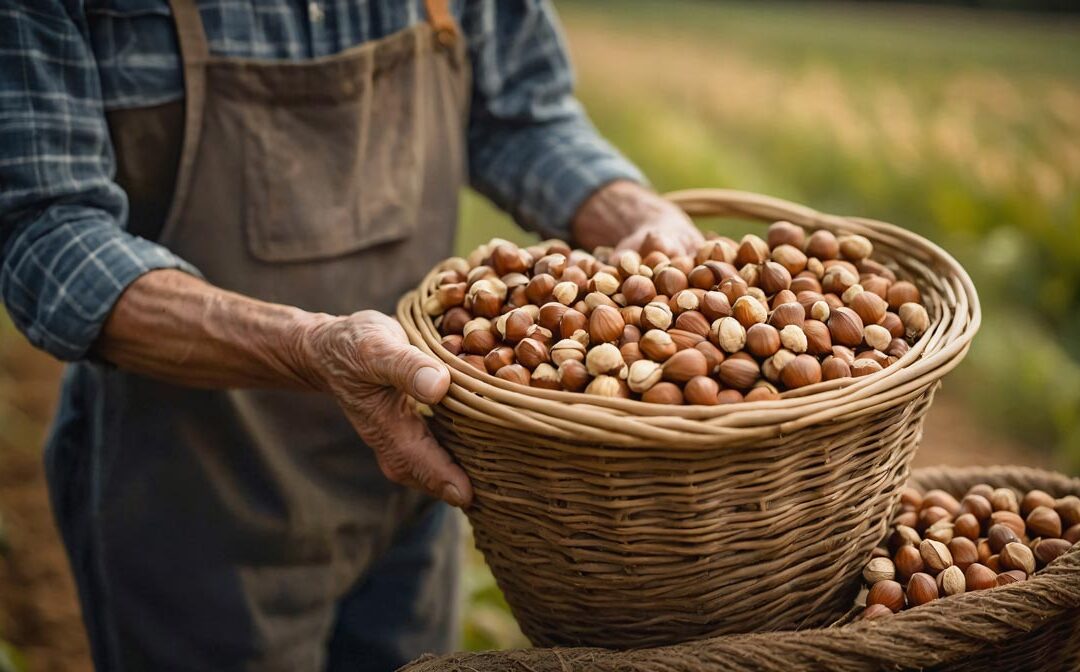Court Supports USDA in Creating a ‘Two-Tier’ Organic System — Imports Skirt Strict Certification/Inspection Requirements
Eugene, Oregon — A federal judge has found in favor of arguments made by USDA lawyers and dismissed a lawsuit brought by an Oregon hazelnut grower who claimed he, along with other US organic farmers, was being competitively injured by imports that are allowed into this country from farms that haven’t been certified and inspected as federal law requires.
The judge in the case, Ann Aiken, found that the plaintiff, Bruce Kaser, did not have standing to claim economic injury or adjudicate his allegation that allowing imports that do not meet the same rigorous requirements as those imposed on US farmers harms the value of the USDA organic seal in the marketplace.
The USDA organic seal is trademarked and owned by the American people, and available for use by farmers, food processors, and retailers who adhere to federal standards.
“While US farmers, like Mr. Kaser, spend thousands of dollars per year to have their farms individually certified by a USDA accredited organization, maintain meticulous records that are audited, and undergo inspections on an annual basis — as the law requires — the USDA has issued a ‘license to steal’ to numerous foreign operations that do not meet the same standards,” said Mark Kastel, executive director of OrganicEye, a farm policy research group that acts as an organic industry watchdog.
The USDA has been allowing what is referred to as “group” certification, where certified agribusinesses can take responsibility for supervising their own suppliers rather than the task being done by independent, accredited certifiers.
“This is a grotesque conflict of interest and exactly what Congress was trying to ameliorate when they passed the Organic Foods Production Act in 1990 delegating the task of protecting ethical industry participants and consumers in the marketplace to the United States Department of Agriculture” Kastel added.
Foreign processors and exporters are aggregating crops from tens of thousands of uncertified foreign farmers managing hundreds of thousands of acres. Many of these exports are flowing in from countries in Central Africa, South and Central America, India, China, Turkey, and other countries with endemic levels of commercial fraud, including perpetrating previous significant organic scandals.
Meanwhile, consumers are being misled by a major USDA advertising and public relations campaign erroneously claiming that every farm, including foreign operations, undergoes “rigorous certification,” when only a small percentage of foreign farms are actually inspected or certified for organic compliance.
When asked to comment, Mr. Kaser said, “The Court’s ruling on lack of harm will be reviewed by the 9th Circuit on appeal. The USDA goes out of its way to teach the public that the USDA organic seal is the ‘gold standard’ for organic compliance, but that’s now at risk.”
In Kaser’s appeal, one of the issues the USDA will be asked, for the first time, to explain is how an organic farmer, who is licensed to use and uses the USDA organic seal, is not harmed when the USDA engages in activities that injure the seal’s marketplace reputation.
Mr. Kaser added, “No one benefits from this — not the small foreign farmers who are being treated as indentured servants, the US farmers being injured in the marketplace, or, particularly, all those who are buying organic food because they are concerned about what they eat. We’re hoping to educate consumers about a hidden foreign practice that’s been going on for far too long, thus allowing them to flex their economic muscles in the marketplace.”
-30-
For more background on the controversy surrounding group certification and its impact on other crops, and the livelihoods of US farmers, click here.
This is far from the first time that organic stakeholders’ tax money has been used to pay for a cadre of USDA lawyers who successfully challenged the standing of farmers over lack of enforcement or ignoring federal statutes relating to organic oversight.
As an example, OrganicEye’s Kastel spearheaded a challenge to the USDA’s practice of appointing agribusiness employees to sit in seats on the National Organic Standard Board that Congress specifically earmarked for individuals who “own or operate an organic farm.”
One of the “farmers” on the NOSB at the time of Kastel’s challenge worked for the international berry giant, Driscoll’s. The other was an employee of a vertically-integrated livestock business, Arkansas Egg. Driscoll’s contracts with independent farmers to grow their berries and the individual in question was the liaison in charge of working with those farmers.
The Driscoll’s employee on the board was ultimately instrumental in lobbying the USDA to allow soilless, hydroponic organic production, despite the law clearly indicating soil stewardship as a prerequisite to gaining organic certification.
“Does this seem corrupt?” Kastel asked.
The same Driscoll’s staff member was later designated as the Organic Trade Association’s Member of the Year.
The two working certified farmers who brought the lawsuit challenging phony farmers on the NOSB had both applied for seats on the board and been passed over. One was a dairy farmer from Wisconsin and the other a beef producer from Ohio.
Based on standing, the federal court threw the case out. And, just like the group certification dustup, the merits of the complaint were never heard.
“If they didn’t have standing, I don’t know who ever would,” said Kastel.
Congress then quietly amended the law, after presumably being encouraged to do so by the USDA and/or industry lobbyists at the OTA, so agribusiness employees can now serve as “farmers” on the NOSB.
One of those currently sitting in a farmer’s seat on the board works for Grimmway Farms, an operation with tens of thousands of acres of organic vegetable production and best known for their brand names, Cal Organics and Bunny Lov.
Get important action items and the latest organic farming and food news delivered right to your inbox.

